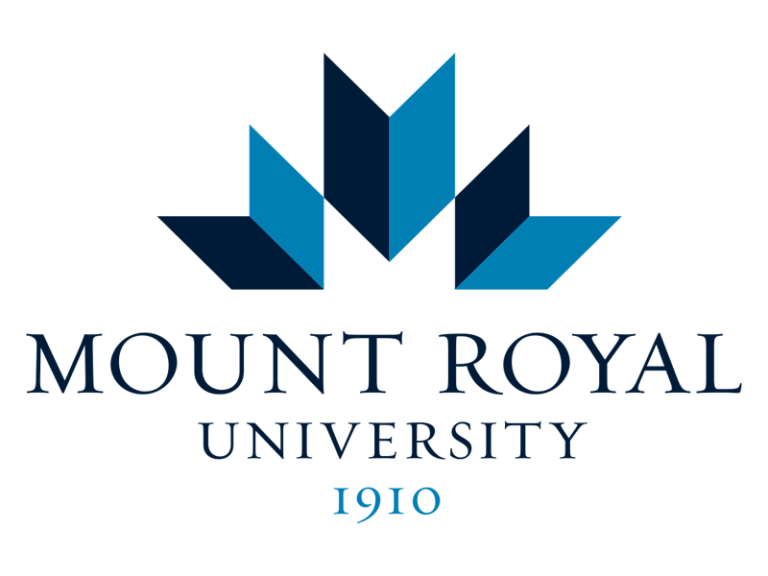Call for Artist-In-Residence
Dates: Friday morning classes from January 10 – April 11, 2025
Location: Mount Royal University
Application deadline: November 8, 2024
Purpose and Objectives
To engage one artist-in-residence to work alongside one course instructor (Kristen Schaffer), 35 teacher candidates and one student research assistant in EDUC2200 Special Topics Course: Enacting Anti-Oppressive Education in the Department of Education at Mount Royal University from January 10 to April 1, 2025.
Teacher candidates will be asked to explore through the arts: How do we be anti-oppressive educators? This course is designed to nurture a relational community and will invite teacher candidates to deeply, critically examine their positionality, their power, and how oppression works in schools. Teacher candidates will be asked to express what they learn and the impacts on their teaching practice through creative expression.
Together, the artists, course instructor, research assistant and teacher candidate will envision and enact anti-oppressive practices through the arts. In effect, the artist-in-residence will act as a co-instructor of the course. The artist-in-residence will have the opportunity to share their practice and support teacher candidates to take up their own arts-informed anti-oppressive practices, and the project will culminate in a public group exhibition at Mount Royal University.
Intended Significance and Impact
Artists use materials, performative expression and social practices to help us to make sense of the world, to tell stories and to speak truths. When students are only exposed to one specific narrative of art (e.g., only the white canonical “masters”), we, as art teachers, inscribe a limited and insular concept of art. Sion (2022) described the value of introducing students to artists from every walk of life: “we shifted our critical perspective to the artists frequently utilized in lessons to redefine “good” art… we discussed how over-reliance on “Old Masters” is an outdated practice that values a narrow definition of art” (p. 219).
I likewise hope that the teacher candidates I work with will learn to expose their future students to know many, varied stories through the arts. As such, in my courses, I intentionally highlight the work of artists from all walks of life, specifically artists, who have been denied equity and marginalized from commonplace narratives of art. We know that when students see themselves in their teachers, they thrive; we also know that when any student is taught by Indigenous Teachers, Black Teachers and Teachers of Colour, they thrive. The same is true when students are introduced to intersectionality diverse artists. Moreover, artists invited to teach (“teaching artists”) can transform “the educational dynamic of the classroom in ways that invigorated both the content and practice of teaching and learning” and “disrupted predictable approaches to schooling by creating unstructured and hospitable spaces characterized by play, conversation, and collaboration” (Graham & Goetz-Zwirn, 2010, p. 220). This residency is intended to provide a platform provide platforms for an artist and teacher candidates to creatively and critically explore what it means to be a teacher for anti-oppression and social justice.
An additional component of this project is the inclusion of a student practitioner researcher, who will support the course instructor to critically reflect and constantly adapt the course as it processes. Qualitative research data will be gathered and analyzed and disseminated through scholarly networks (e.g., journals, conferences). The artist-in-resident will have the opportunity to take part in forthcoming research opportunities associated with the project.
Anticipated Outcomes
The artist-in-residence, in consultation with the course instructor, will have input in the course design, introduce their practice to teacher candidates, participate in classroom discussions and activities, and generate a new work to examine in collaboration with teacher candidates to answer the guiding question, how do we be anti-oppressive educators? The artist-in-residence will work with students to install a public exhibition of their work at the end of the term.
Artist-In-Residence
An ideal candidate will have an established justice-oriented arts practice (any discipline) as well as an interest and or experience with teaching, learning and or education in and with the arts. As this is an in-person course, the artist must live locally and be in a position to commute to MRU. Artists who art/have been equity-denied will be given preference. Accessibility accommodations can be provided as needed. The artist-in-resident should be available for all 12 Friday morning classes from January 10 – April 11, 2025.
Timeline
- Early November 2024: Interviews with shortlist of potential artists-in-residence
- End of November to Early December 2024: Course planning (16 hours of consultation)
- January 10, 2025: First day of class (Fridays, 8:30 – 11:20 am)
- April 11, 2025: Last day of class
- April/May 2025: Public exhibition of lessons learned at MRU
Budget
An artist fee and material budget will be provided. For more details about the fee please contact Kristen at kschaffer@mtroyal.ca. The budget for this project is informed by CARFAC-RAAV Minimum Recommended Fee Schedule for 2025. The entire project budget has generously been
provided by the Office of Equity, Diversity and Inclusion Opportunity Fund at Mount Royal
University.
To Apply
Please send a cover letter describing what you might bring to this project. Please include a link to a website/CV. Please include the name of a reference. Send to kschaffer@mtroyal.ca by November 8, 2025.

